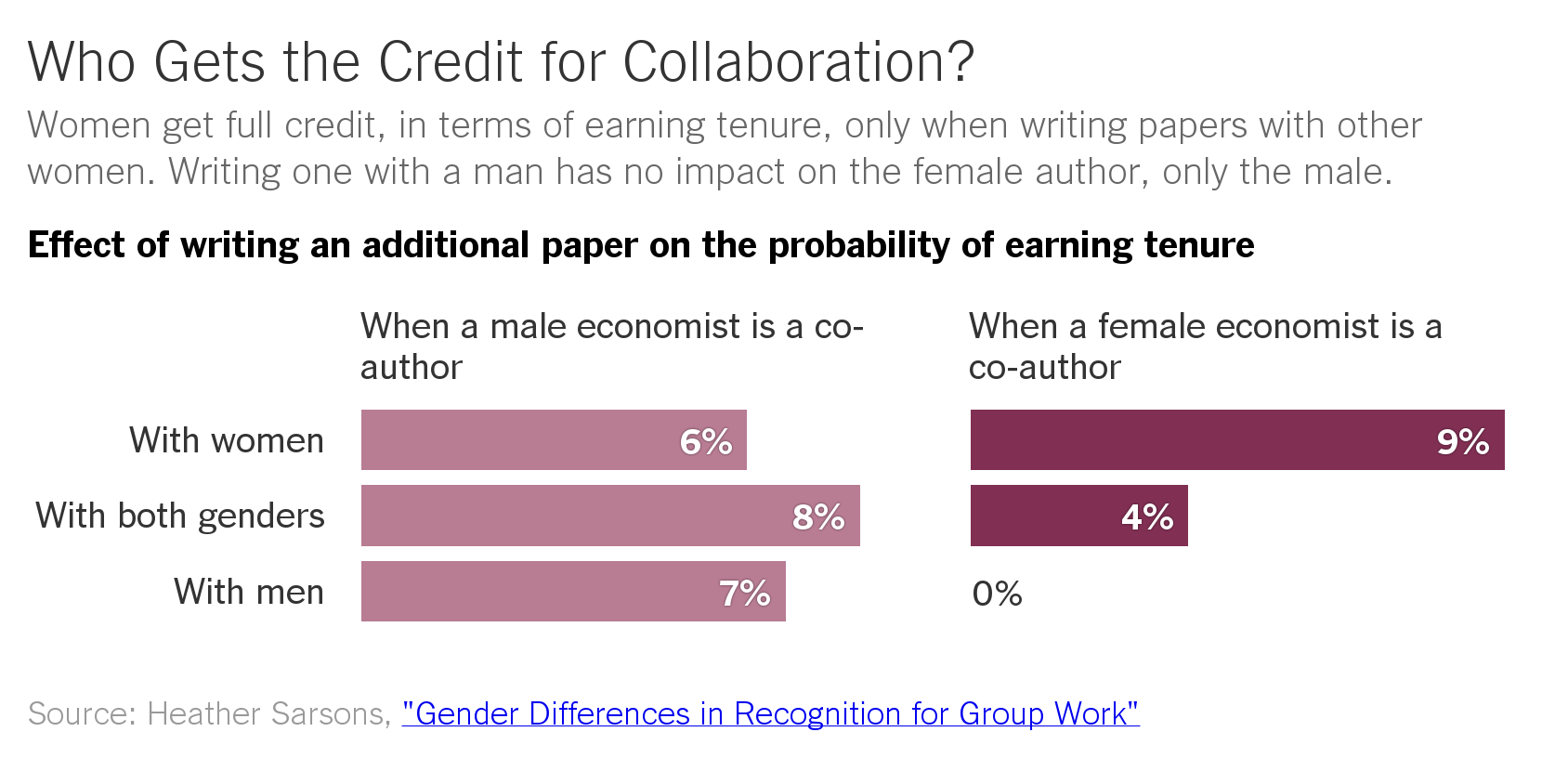- the popular sense of wow, amazing, cool
- and the original sense of this is so awful that I feel scared.
Co-authorship does present challenges when assessing someone's record, no doubt. Indeed, I was denied promotion to full professor at my previous job since my second book essentially counted as zero because it was co-authored. The signalling of my name going first despite not being in alphabetical order was ignored. Why? Not sexism and not because co-authorship is wrong as one of my leading opponents had co-authored stuff. No, the problem was that a handful of individuals didn't want me to get promoted and then read the file the way they wanted to, even if it was hypocritical or logically inconsistent or both.
It may be that economists on tenure committees just tend to devalue the contribution of female co-authors in general or it may be that they use the co-authored work to diminish records so that women are denied tenure. It ain't pretty either way you look at it.
This sends such an awful message, particularly given the other inequalities that already exist. Since the econ profession is still male dominated, co-authoring with senior faculty means co-authoring with men mostly. So, this article's findings suggest that women should avoid doing that. Indeed, the way to proceed is to solo author. While it is fine to solo author, doing so to avoid the slings and arrows of sexist senior males puts women at a competitive disadvantage as they lose publishing opportunities. The catch-22 is this: publishing with other folks can help get more/different stuff out and cited but then it gets discounted?
I don't know if this bias is as bad in poli sci. The paper indicates that it is not as big a problem in sociology. Maybe partly a function of how male dominated each discipline is. I do know that political science is far more co-authored now than in the past, that folks struggle with how to evaluate co-authored work, and, yes, there is still sexism in poli sci.
The real Iron Law that matters here is this: people will read a person's tenure package positively if they want to, and negatively if they want to. They can find things to nitpick if they want to deny tenure and they can come up with justifications if they want tenure someone with a shaky record. The best way to shield against that particular dynamic is to have the best record possible, making it hard but not impossible for those motivated to vote now to do so AND to give folks up the chain of decision-making reasons to overturn bad decisions AND to have a record that makes one competitive elsewhere if things go awry. What that means for co-authoring in political science for women? Not sure, although the safest bet has always been to do some solo work to demonstrate one can work on their own.

No comments:
Post a Comment